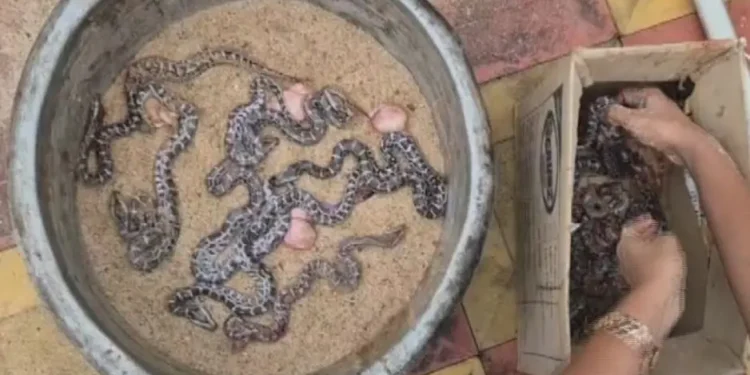Dhenkanal/Angul-In a remarkable achievement for wildlife conservation in Odisha, 14 Indian python eggs have successfully hatched through artificial incubation—a rare and encouraging outcome for snake preservation efforts in the region.
The eggs were originally discovered in May by villagers in Gaudapashi, a village under Meramundali in Angul district. They spotted a female python guarding her clutch near a pond embankment at a construction site. Concerned for the safety of the reptile and its unhatched offspring, the villagers contacted Snake Helpline, a prominent wildlife volunteer organization in the state.
Snake Helpline’s General Secretary, Subhendu Mallik, coordinated the safe extraction of the eggs with assistance from local forest staff. The python, meanwhile, was safely released back into the wild. The eggs were then carefully transferred to the Dhenkanal Forest Range Office under the guidance of Divisional Forest Officer (DFO) Sumit Kar.
Following the relocation, the forest department approved artificial incubation—a process rarely attempted in Odisha for python eggs. The initiative involved maintaining precise temperature and humidity levels for several weeks to replicate natural conditions.
The successful hatching of all 14 eggs not only demonstrates the effectiveness of artificial incubation in snake conservation but also reflects growing community engagement and swift coordination between local wildlife activists and forest authorities.
Wildlife experts have hailed the effort as a promising model for future rescue and conservation missions involving vulnerable reptile species. This success reinforces the importance of public awareness, timely intervention, and scientific handling in protecting India’s ecological diversity.






